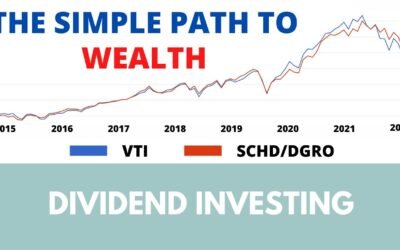Introduction to Gold Investment
Gold has been a symbol of wealth and a store of value for centuries. Its allure is timeless, and its role in the financial markets remains significant. Whether you’re a seasoned investor or a novice looking to diversify your portfolio, understanding the popular strategies for investing in gold is crucial. This article delves into various methods, benefits, and considerations for investing in gold, providing you with a comprehensive guide to make informed decisions.
Why Invest in Gold?
Before diving into the strategies, it’s essential to understand why gold is a valuable investment. Here are some key reasons:
- Hedge Against Inflation: Gold often retains its value even when the purchasing power of fiat currencies declines.
- Safe Haven Asset: During times of economic uncertainty or geopolitical instability, gold is considered a safe haven.
- Portfolio Diversification: Adding gold to your investment portfolio can reduce overall risk and volatility.
- Liquidity: Gold is highly liquid, meaning it can be easily bought or sold in the market.
Types of Gold Investments
There are several ways to invest in gold, each with its own set of advantages and disadvantages. Here, we explore the most common types:
Physical Gold
Investing in physical gold involves purchasing tangible gold assets such as coins, bars, and jewellery. This method is straightforward but comes with storage and insurance considerations.
- Gold Coins: Popular among collectors and investors, gold coins are easy to buy and sell.
- Gold Bars: Typically purchased by serious investors, gold bars offer a lower premium over the spot price.
- Jewellery: While not the most efficient investment, gold jewellery can hold sentimental value and be worn.
Gold ETFs and Mutual Funds
Gold Exchange-Traded Funds (ETFs) and mutual funds offer a convenient way to invest in gold without the need for physical storage. These financial instruments track the price of gold and can be traded on stock exchanges.
- Gold ETFs: These funds invest directly in gold or gold-related assets, providing exposure to gold prices.
- Gold Mutual Funds: Managed by professionals, these funds invest in a diversified portfolio of gold-related assets.
Gold Mining Stocks
Investing in gold mining stocks involves buying shares of companies that mine and produce gold. This method offers leverage to the price of gold but comes with additional risks related to the mining industry.
- Major Mining Companies: Large, established companies with significant gold production.
- Junior Mining Companies: Smaller, exploration-focused companies with higher risk and potential reward.
Gold Futures and Options
Gold futures and options are derivatives that allow investors to speculate on the future price of gold. These instruments are complex and suitable for experienced investors.
- Gold Futures: Contracts to buy or sell gold at a predetermined price on a specific date.
- Gold Options: Contracts that give the right, but not the obligation, to buy or sell gold at a specific price.
Strategies for Investing in Gold
Now that we’ve covered the types of gold investments, let’s explore some effective strategies to maximise your returns:
Buy and Hold
The buy-and-hold strategy involves purchasing gold and holding it for an extended period. This approach is based on the belief that gold will appreciate over time, providing long-term gains.
- Pros: Simple and low-maintenance, potential for significant long-term gains.
- Cons: Requires patience, potential for short-term volatility.
Dollar-Cost Averaging
Dollar-cost averaging involves investing a fixed amount of money in gold at regular intervals, regardless of the price. This strategy reduces the impact of market volatility and lowers the average cost per unit over time.
- Pros: Reduces risk, disciplined approach, smooths out market fluctuations.
- Cons: May miss out on short-term gains, requires consistent investment.
Trend Following
Trend following is a strategy that involves analysing market trends and making investment decisions based on the direction of gold prices. This approach requires technical analysis and a keen understanding of market indicators.
- Pros: Potential for high returns, capitalises on market momentum.
- Cons: Requires active management, risk of false signals.
Hedging
Hedging involves using gold to protect against potential losses in other investments. This strategy is often employed by investors looking to mitigate risk in their portfolios.
- Pros: Reduces overall portfolio risk, provides stability during market downturns.
- Cons: May limit potential gains, requires careful planning.
Factors to Consider When Investing in Gold
Investing in gold requires careful consideration of various factors. Here are some key aspects to keep in mind:
Market Conditions
Understanding the current market conditions is crucial for making informed investment decisions. Factors such as economic indicators, geopolitical events, and central bank policies can influence gold prices.
Investment Goals
Clearly defining your investment goals will help you choose the right gold investment strategy. Are you looking for long-term growth, short-term gains, or portfolio diversification?
Risk Tolerance
Your risk tolerance will determine the type of gold investment that suits you best. Physical gold is generally considered low-risk, while gold mining stocks and derivatives carry higher risk.
Costs and Fees
Consider the costs and fees associated with different gold investments. Physical gold requires storage and insurance, while ETFs and mutual funds have management fees.
Liquidity
Liquidity refers to how easily an asset can be bought or sold. Physical gold is highly liquid, but some gold investments, such as junior mining stocks, may be less so.
Case Study: Historical Performance of Gold
To better understand the potential of gold as an investment, let’s examine its historical performance. The table below highlights the annual average price of gold over the past decade:
| Year | Average Price (USD/oz) |
|---|---|
| 2012 | 1,669.00 |
| 2013 | 1,411.23 |
| 2014 | 1,266.40 |
| 2015 | 1,160.06 |
| 2016 | 1,251.92 |
| 2017 | 1,257.12 |
| 2018 | 1,268.93 |
| 2019 | 1,393.34 |
| 2020 | 1,769.64 |
| 2021 | 1,798.61 |
As seen in the table, gold prices have experienced fluctuations over the years, but the overall trend has been upward. This historical data underscores gold’s potential as a long-term investment.
Conclusion
Investing in gold can be a rewarding endeavour if approached with the right strategies and considerations. Whether you choose to invest in physical gold, ETFs, mining stocks, or derivatives, it’s essential to align your investment choices with your goals and risk tolerance. By understanding the various types of gold investments and employing effective strategies, you can maximise your returns and safeguard your wealth against economic uncertainties.
In summary, the key takeaways for investing in gold are:
- Gold serves as a hedge against inflation and a safe haven during economic turmoil.
- There are multiple ways to invest in gold, each with its own set of advantages and disadvantages.
- Effective strategies include buy-and-hold, dollar-cost averaging, trend following, and hedging.
- Consider factors such as market conditions, investment goals, risk tolerance, costs, and liquidity when making investment decisions.

Q&A Section
Q1: What is the best way to invest in gold for beginners?
A1: For beginners, investing in gold ETFs or mutual funds is often recommended due to their ease of access and lower costs compared to physical gold.
Q2: How does gold act as a hedge against inflation?
A2: Gold retains its value over time, making it a reliable store of value when the purchasing power of fiat currencies declines due to inflation.
Q3: What are the risks associated with investing in gold mining stocks?
A3: Gold mining stocks carry risks related to the mining industry, such as operational challenges, regulatory issues, and fluctuating gold prices.
Q4: Can I invest in gold through my retirement account?
A4: Yes, many retirement accounts, such as self-directed IRAs, allow investments in gold ETFs, mutual funds, and even physical gold.
Q5: How do I store physical gold safely?
A5: Physical gold can be stored in a secure home safe, a bank safety deposit box, or through professional storage services that offer insurance and security.
More reading about popular gold investing strategies:














 How to trade CFD? (00:49)
How to trade CFD? (00:49) How to trade binary options*? (01:22)
How to trade binary options*? (01:22) Forex. How to start? (01:01)
Forex. How to start? (01:01)